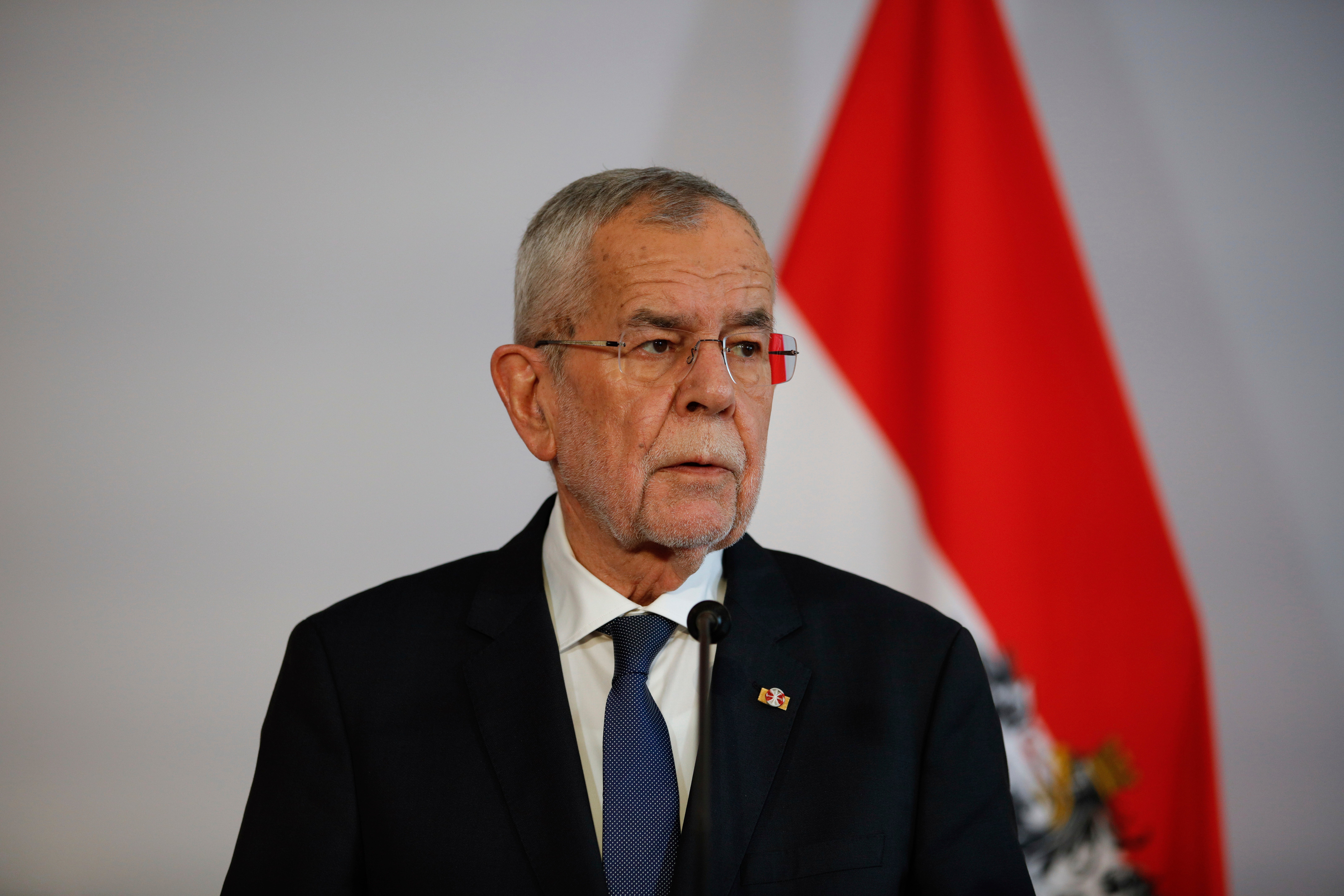Austria's president seeks reelection after turbulent term
Austria’s 78-year-old president says he will seek reelection later this year, following a term that has seen him pilot the Alpine country through repeated political upheaval

Your support helps us to tell the story
From reproductive rights to climate change to Big Tech, The Independent is on the ground when the story is developing. Whether it's investigating the financials of Elon Musk's pro-Trump PAC or producing our latest documentary, 'The A Word', which shines a light on the American women fighting for reproductive rights, we know how important it is to parse out the facts from the messaging.
At such a critical moment in US history, we need reporters on the ground. Your donation allows us to keep sending journalists to speak to both sides of the story.
The Independent is trusted by Americans across the entire political spectrum. And unlike many other quality news outlets, we choose not to lock Americans out of our reporting and analysis with paywalls. We believe quality journalism should be available to everyone, paid for by those who can afford it.
Your support makes all the difference.Austria's 78-year-old president said Sunday that he will seek reelection later this year, following a term that has seen him pilot the Alpine country through repeated political upheaval.
Alexander Van der Bellen, a liberal politician who once led the Green party, said on Twitter that Austria and Europe face turbulent times because of the coronavirus pandemic, the Russian invasion of Ukraine, their impact on the economy and the challenges of climate change.
“I would like to continue putting my experience at the service of our country,” he said, pledging to concentrate fully on his duties until a “short, fair, transparent and above all frugal” campaign this fall.
It's not clear who he will face in the election, whose date hasn't been set yet. The Austrian president serves a six-year term.
Van der Bellen beat the far-right Freedom Party's candidate, Norbert Hofer, in a December 2016 vote. That was a rerun ordered by Austria's Constitutional Court after Hofer's party had claimed widespread voting irregularities in the initial runoff months earlier, which Van der Bellen won narrowly.
The Austrian president is in principle a largely ceremonial figure but plays a prominent role in times of domestic political crisis. That has given Van der Bellen high visibility.
After conservative Chancellor Sebastian Kurz's governing coalition with the Freedom Party collapsed in scandal in 2019, the president appointed an interim Cabinet of non-partisan experts under Brigitte Bierlein, then the head of the Constitutional Court.
Austria's top politicians trooped in and out of Van der Bellen's Hofburg palace again last fall after Kurz, who had returned in a new government with the Greens, resigned. The country had three chancellors in two months, with Kurz's successor, Alexander Schallenberg, giving way within weeks to current Chancellor Karl Nehammer.